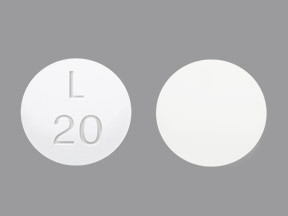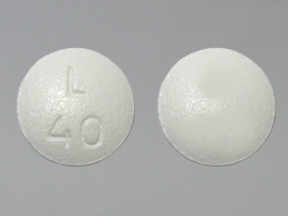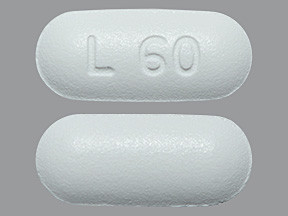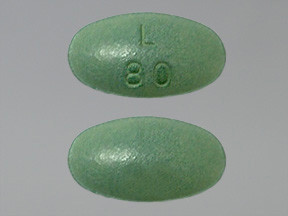LURASIDONE - ORAL
PHONETIC PRONUNCIATION: (loo-RAS-i-done)
COMMON BRAND NAME(S): Latuda
GENERIC NAME(S): lurasidone HCl
Uses
USES: This medication is used to treat certain mental/mood disorders (such as schizophrenia, depression associated with bipolar disorder). Lurasidone helps you to think more clearly, feel less nervous, and take part in everyday life. It may also help to decrease hallucinations (hearing/seeing things that are not there). In addition, this medication may improve your mood, sleep, appetite, and energy level. Lurasidone is a psychiatric medication that belongs to the class of drugs called atypical antipsychotics. It works by helping to restore the balance of certain natural substances in the brain.
How to use LURASIDONE - ORAL
HOW TO USE: Read the Medication Guide provided by your pharmacist before you start taking lurasidone and each time you get a refill. If you have any questions, ask your doctor or pharmacist. Take this medication by mouth with food as directed by your doctor, usually once daily. The dosage is based on your medical condition, response to treatment, and other medications you may be taking. Be sure to tell your doctor and pharmacist about all the products you use (including prescription drugs, nonprescription drugs, and herbal products). Take this medication regularly to get the most benefit from it. To help you remember, take it at the same time each day. Continue taking this medication exactly as prescribed, even if you are feeling better and thinking more clearly. Do not increase your dose or take this drug more often than prescribed. Your symptoms will not improve any faster, and your risk of side effects will increase. Do not stop taking this medication without consulting your doctor. Avoid eating grapefruit or drinking grapefruit juice while using this medication unless your doctor or pharmacist says you may do so safely. Grapefruit can increase the chance of side effects with this medicine. Ask your doctor or pharmacist for more details. Tell your doctor if your condition does not improve or if it worsens. It may take several weeks before you feel the full benefit of this medication.
Side Effects
Precautions
Interactions
Overdose
Images
Reviews
Faq for LURASIDONE - ORAL
Lurasidone is used to treat schizophrenia and bipolar disorder.
Lurasidone works by helping to restore the balance of certain natural substances (such as dopamine and serotonin) in the brain.
Common side effects of Lurasidone may include drowsiness, dizziness, nausea, constipation, and dry mouth.
It may take several weeks before you feel the full benefit of Lurasidone. It is important to continue taking it as prescribed by your doctor.
It is generally recommended to avoid alcohol while taking Lurasidone as it can increase the risk of side effects such as drowsiness and dizziness.
Certain medications, such as strong CYP3A4 inhibitors, can interact with Lurasidone and increase the risk of side effects. It is important to inform your doctor about all the medications you are taking.
Weight gain is a potential side effect of Lurasidone. It is important to monitor your weight and inform your doctor if you notice any significant changes.
Lurasidone is not approved for use in children and adolescents under 18 years of age. It should only be used as prescribed by a doctor.
If you miss a dose of Lurasidone, take it as soon as you remember. However, if it is close to the time for your next dose, skip the missed dose and resume your regular dosing schedule. Do not double the dose to catch up.
Warning
WARNING: There may be a slightly increased risk of serious, possibly fatal side effects (such as stroke, heart failure, fast/irregular heartbeat, pneumonia) when this medication is used by older adults with dementia. This medication is not approved for the treatment of dementia-related behavior problems. Discuss the risks and benefits of this medication, as well as other effective and possibly safer treatments for dementia-related behavior problems, with the doctor. Lurasidone is used to treat certain mental/mood disorders (such as schizophrenia, depression associated with bipolar disorder). Drugs used to treat depression can help prevent suicidal thoughts/attempts and provide other important benefits. However, studies have shown that a small number of people (especially people younger than 25) who take drugs to treat depression may experience worsening depression, other mental/mood symptoms, or suicidal thoughts/attempts. Therefore, it is very important to talk with the doctor about the risks and benefits of drugs used to treat depression (especially for people younger than 25), even if treatment is not for a mental/mood condition. Tell the doctor right away if you notice worsening depression/other psychiatric conditions, unusual behavior changes (including possible suicidal thoughts/attempts), or other mental/mood changes (including new/worsening anxiety, panic attacks, trouble sleeping, irritability, hostile/angry feelings, impulsive actions, severe restlessness, very rapid speech). Be especially watchful for these symptoms when a new drug to treat depression is started or when the dose is changed.
Disclaimer
IMPORTANT: HOW TO USE THIS INFORMATION: This is a summary and does NOT have all possible information about this product. This information does not assure that this product is safe, effective, or appropriate for you. This information is not individual medical advice and does not substitute for the advice of your health care professional. Always ask your health care professional for complete information about this product and your specific health needs.




No Reviews Yet